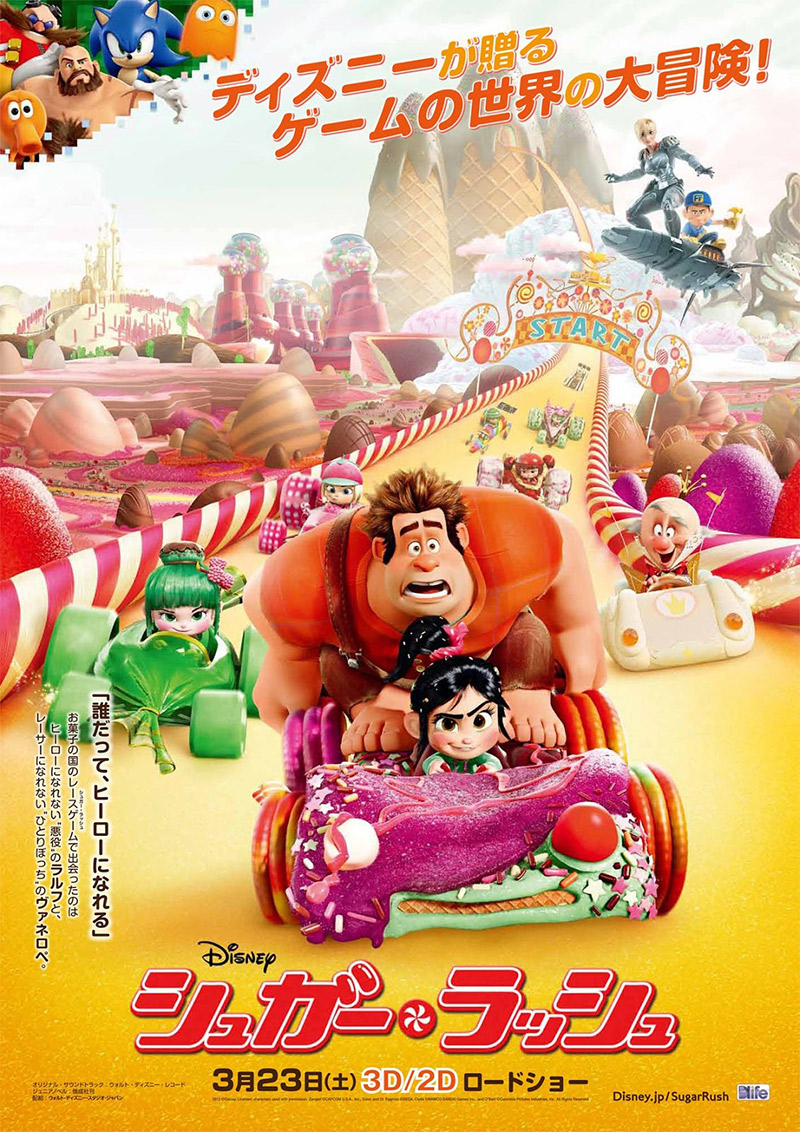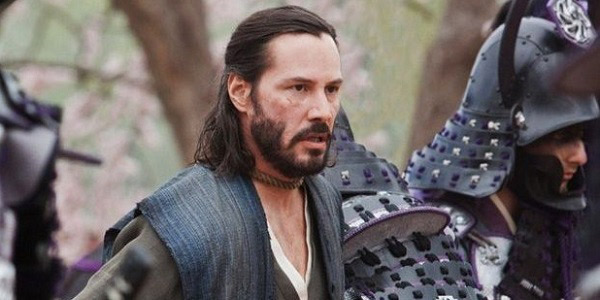Hollywood traditionally works in the mainstream, trying to make films with big budgets and even bigger audiences. And the Hollywood system constantly comes under fire for insisting on making more sequels, reboots, and films so unoriginal you can name everything that's going to happen before it comes on screen. So isn't it odd that in the past year and a half, Hollywood has made a kaiju film, a samurai movie, another movie that heavily features samurai, and a film not just based on a video game, but based on all video games? Big-budget original films are huge gambles in today's Hollywood, so why were they made? Because the studios are trying to recapture a formerly reliable Japanese box office market, by making movies that exist on the intersection between Japanese and American culture. This Japanamerican strategy has been at work for more than a year now (and there's a second attempt at a Hollywood Godzilla movie coming out in May). But has it worked?
The Problem

Japan is the third-largest box office market in the world, behind the shared US/Canada market and China, which only passed Japan as recently as 2012. It's a huge market, and for years and years Japan has watched the same Hollywood movies that the United States watches. Look at the top earning movies in Japan over the past decade and it won't look too different to the top movies in the United States: Harry Potter, Pirates of the Caribbean, and so on. Of the top ten opening weekends in Japanese cinema history, only one isn't American-made: One Piece Film Z. The biggest Hollywood films will gross 80 to 120 million dollars in Japan, such huge jumbo numbers that it's hard to get your head around.
But in 2012, that changed. While The Avengers was setting box office records around the world and other movies like The Dark Knight Rises and The Hunger Games, Skyfall, and the Spider-Man reboot were making hundreds of millions of dollars, Japan had no interest in any of it. Every single Hollywood movie was beaten that year by Umizaru 4, a Japanese Coast Guard drama based on the manga of the same name; Thermae Romae, another manga-inspired live action film about an ancient Roman bathhouse architect who finds a tunnel to modern Japan; the millionth Bayside Shakedown movie, a spectacularly successful Japanese police comedy-dramas; and the aforementioned One Piece Film Z. The top-earning American-made movie was Les Miserables, which earned a relatively weak $62 million. The blockbuster of the year, The Avengers, only earned $42 million in Japan, and Hollywood realized that they might be about to lose the world's third-largest box office to the suddenly dominant Toho and Toei studios.
The Plan

So Hollywood set out to make movies that they thought would appeal to Japan. Of the Big Eight studios, four released films within the past year and a half that seemed to take on this basic goal of "doing something Japanese to recapture their market":
Disney produced an animated film about video games called Wreck-It Ralph in most of the world, but called Sugar Rush in Japan. The basic idea for Wreck-It Ralph had been sitting on a desk at Disney since the late '80s, but it got picked up and quickly produced with an unprecedented amount of Japanese cooperation: Licensing deals with Nintendo, Sega, and other Japanese companies, a marketing campaign starring the Japanese geek comedy duo Yoiko, and even an AKB48 song and video with the same name as the movie.
Warner Bros. released Pacific Rim, a Guillermo del Toro tribute to kaiju films. The movie includes characters and segments about the defense of the Japanese, American, Chinese, and Russian Pacific coasts (Hey! Can you name four of the five largest box office markets?), and Pacific Rim also cast Japanese actress Rinko Kikuchi as the female lead.
Fox bewildered some people when they announced they were making another Wolverine movie, only this time set in Japan and with a number of Japanese actors, including Hiroyuki Sanada. Yes, even though The Wolverine may have had a fairly weak plot justification for sending Hugh Jackman to Japan, the economic factors may have been a bit stronger.
And finally, Universal gave us 47 Ronin, an American version of a classic Japanese tale with virtually all Japanese actors besides Keanu Reeves. Fraught with re-writes and re-edits to determine exactly how Japanese the movie should be, the film was such an overt attempt to earn Japanese box office that it was a marketing disaster when 47 Ronin debuted at #5 in its opening weekend in Japan, ahead of its American release.
The Results

And the beautiful part is that all this effort, all this extra attention toward trying to bring Japan back into the Hollywood fold, resulted in a second straight year of Japanese ambivalence to American movies, with the Japanamerican movie attempts doing even worse than normal. Monsters University was Hollywood's only clear hit in the Japanese box office, earning $90 million, followed, surprisingly, by a subtitled version of Seth MacFarlane's wise-cracking stuffed animal bro-comedy Ted at $44 million. The rest of the Japanese box office top 10 are domestic products like Miyazaki's latest film The Wind Rises and Lupin III vs. Conan.
Wreck-It Ralph earned a disappointing $30 million, worse than Cars 2 or Up or Tangled did in Japan in previous years, and only slightly better than Brave. Yet it was the best success of these four "Japanamerican" movies. Pacific Rim made $14.5 million. The Wolverine earned $8 million. And 47 Ronin: Only $2.8 million.
Besides 47 Ronin, the movies all made a modest profit (going by the standard rule of thumb: movies generally break even when they gross twice their production budget worldwide), but none of them did well in Japan, the place they were supposed to win back for Hollywood. If the studios' strategy with these curiously Japan-heavy films was in fact to win back the Japanese box office, then they failed miserably. (If their objective was to get Rinko Kikuchi some more work then hey, good job.)
The plan didn't work, and it's not terribly hard to see why. Japan has never had a problem with non-Japanese actors and non-Japanese settings before, so giving them that is a very shallow approach to the problem. An anonymous U.S. studio marketing executive told Variety that he thought Hollywood had a tone problem and an audience problem in Japan: "What we'd like to see are more family-oriented films. Too many films coming out of Hollywood are rather dark and depressing — there's not a lot that families can take their kids to." And media consultant Geoffrey Bossiere attributed Japanese disinterest to the tone of violence and destruction in even the more light-hearted American blockbusters like The Avengers.
One last diagnosis: America (and many other countries) love comic book adaptations, and Japan loves to go see manga adaptations. Hollywood can't stop making Marvel and DC superhero movies, which take in boatloads domestically and in other English-speaking countries like the United Kingdom and Australia. But with the slight exception of Spider-Man movies, superhero movies have never made much money in Japan, whether that's a tone problem (dark, violent, and so on) or just a lack of interest in the characters.
So, although a new Godzilla movie is on the horizon, this is probably the end of this swath of American movies with Japanese actors, themes, and settings, at least if Hollywood does what it usually does, that being going where the money is.
If you've seen any of these films, you'll probably intuitively understand why they didn't do well in Japan… and in some cases America as well. And, if you haven't heard the bad news yet… Basically, don't spend your own money on going to see it, especially if those moneys are counted in yen.
